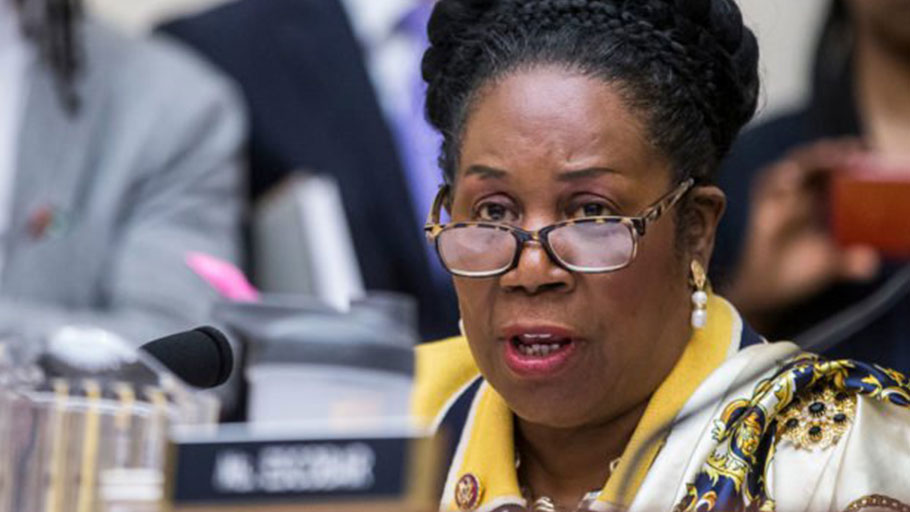Black women often have spearheaded the fight for reparations, but it’s time they put their needs front and center.
By Courtland Milloy, The Washington Post —
At a recent congressional hearing on reparations for slavery, Rep. Sheila Jackson Lee made an unusual disclaimer.
“I am not here in anger or anguish, and I am not seeking to encourage hostilities,” said Jackson Lee (D-Tex.), who sponsored legislation that would set up a commission to study reparations. “I hope that we come in peace.”
There was no apparent need for such assurance. And even if she had been angry and anguished, so what? Sen. Cory Booker (D-N.J.), during his testimony in support of the bill, had no such concerns when speaking his mind.
“I feel anger over health disparities and the criminal justice system as the new Jim Crow,” he said. “I am brokenhearted and angry, living in a community and seeing where the nation is unfair to so many people.”
Perhaps Jackson Lee was just being hospitable. A hearing on reparations for slavery, however, is not the time for coddling. It’s for speaking up.
Testimony at the hearing, held last week before a House Judiciary subcommittee, focused largely on economic losses resulting from government policies that fostered discrimination in housing, education and pretty much all avenues of life.
As economist Julianne Malveaux put it, “Enslavement was about the devil’s work of predatory capitalism.”
True enough, but there was another, far more important kind of loss.
At a 2017 conference on reparations, in the midst of the #MeToo movement, a group of black women said they did not want it forgotten that generations of black women had been subjected to rape and bred for more than 250 years: “As attention is called to the ugly reality of present-day sexual harassment, there must also be attention to the historical sexual violations of Black women during the enslavement era and beyond. . . . The unfettered crimes against Women of African Descent during the enslavement era and beyond . . . still await remedy and must never be forgotten.”
That subject was not broached then, and it wasn’t broached last week.
Kimberle Crenshaw, a professor of law at UCLA and Columbia University, told me that it’s important to remember that “slavery was not just the theft of labor but the theft of black women’s sexual autonomy.”
“It was the theft of family, theft of the right to motherhood, theft of an image of oneself in order to justify all of the abuse,” she said.
In March, the Black Women’s Roundtable, which works to promote equity, released a report showing that black women are still being victimized and abused.
“Black women, women of color, and transgender women of all races and ethnicities experience the highest rates of violence,” the report said. “No place is safe — not homes, workplaces and other public spaces, especially the streets where women are often forced to walk a gauntlet of unwelcome remarks.”
Debra A. Varnado, in a March post on the website of the Center for Health Journalism, noted that black women constitute less than 10 percent of the nation’s adult female population but that more than 25 percent of black women report experiencing domestic violence.
“For assault injuries, black women visit emergency rooms and are hospitalized at exceedingly high rates: 616.7 visits and 42 hospitalizations per 100,000,” Varnado wrote. “The rate for all women is 181.4 and 11.7 per 100,000. Black women are three times more likely to die from homicide than all women, 4.3 per 100,000 versus 1.4.”
Nkechi Taifa, a human rights lawyer based in D.C. and a founding member of the National African American Reparations Commission (NAARC), which helped draft the bill, said she believes what we are seeing today “is just a continuation of the historic oppression of black women.”
“There has been no connecting the dots along that continuum, and as a result there has been no justice, no healing and few programs to help alleviate the generational trauma,” she said.
Taifa said she hoped that the bill would spark “an official dialogue” about the ongoing legacy of slavery.
But speaking frankly about the systemic oppression of black women — which still shows up in all manner of racial and gender disparities, including pay — has proved difficult.
In seeking reparations for black people, black women have sometimes shown a reluctance to seek reparations for themselves.
“We need external reparations but also internal repair, self-healing, emotional emancipation — and we can’t wait for H.R. 40 to pass before starting that process,” Taifa said. “We need to deal with ourselves while we seek justice.”
And it all hinges on the willingness of black women to speak out, to not hold back out of fear of making others uncomfortable.
“If you don’t understand that the theft of black women’s autonomy was the principal loss caused by slavery, then you won’t have an accurate description of the problem and your fix is going to be partial,” Crenshaw said. “That slavery was made possible by the systemic rape of black women is something we just don’t talk about, but we must.”
And if that makes us angry and anguished, it should.















